Author: Dr. Sunny
-

Best AI Tools for Research Paper Writing
Writing a research paper can be time-consuming and challenging, from finding relevant sources to ensuring proper citations and clear writing. Fortunately, AI-powered tools can help streamline the process, making research, writing, and editing more efficient. Whether you need assistance with literature review, grammar enhancement, citation management, or plagiarism detection, these AI tools can significantly improve…
-
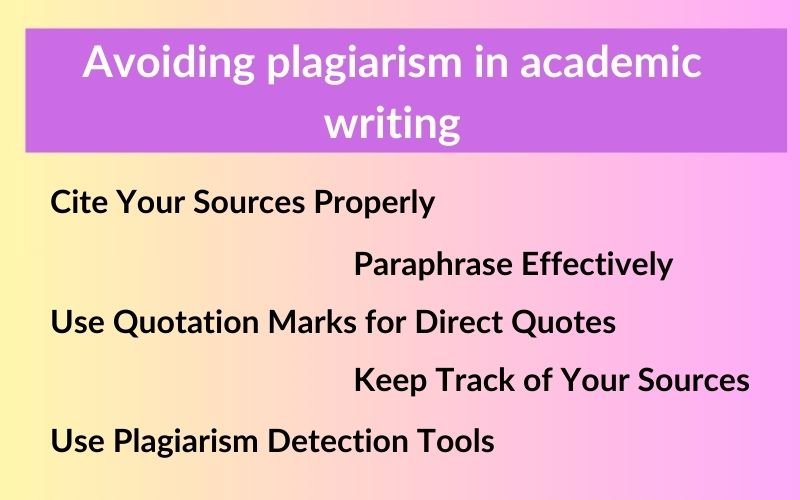
How to Avoid Plagiarism in Academic Writing?
Avoiding plagiarism in academic writing is crucial for maintaining integrity and credibility. Here are some effective strategies: 1. Understand Plagiarism 2. Cite Your Sources Properly 3. Paraphrase Effectively 4. Use Quotation Marks for Direct Quotes 5. Keep Track of Your Sources 6. Use Plagiarism Detection Tools 7. Develop Your Own Ideas 8. Summarize Carefully 9.…
-
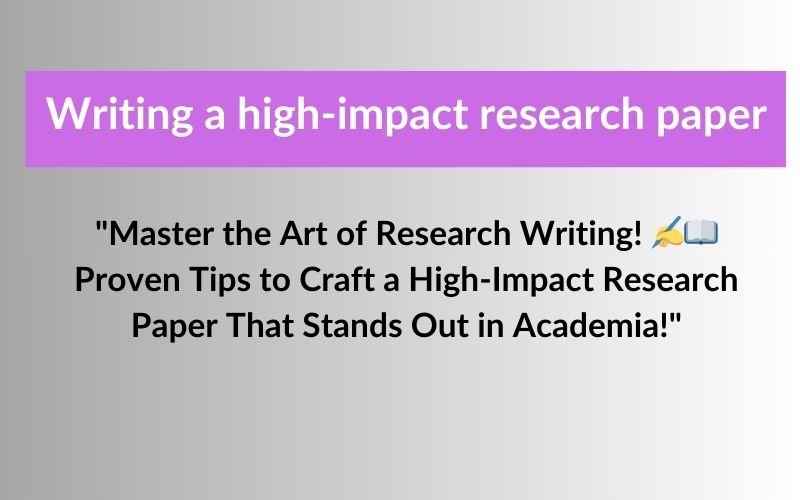
Tips for Writing a High-Impact Research Paper
Writing a high-impact research paper requires a combination of strong research, clear presentation, and effective writing. Here are some key tips to help you craft a compelling and well-structured paper: 1. Choose a Strong Research Topic 2. Conduct a Comprehensive Literature Review 3. Formulate a Clear Research Question & Hypothesis 4. Structure Your Paper Properly…
-
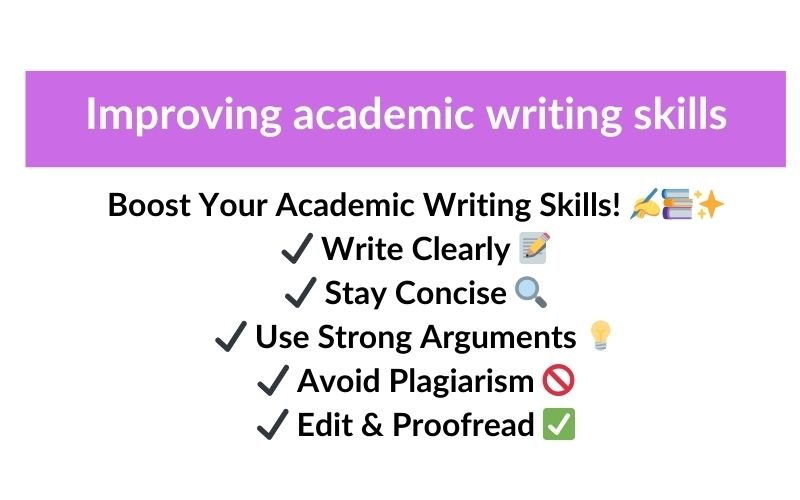
How to Improve Academic Writing Skills?
Improving academic writing skills requires consistent practice, attention to detail, and a strong understanding of academic conventions. Here are some key strategies: 1. Understand the Basics of Academic Writing 2. Develop Strong Reading Habits 3. Plan and Organize Your Writing 4. Strengthen Your Argumentation Skills 5. Master Academic Vocabulary and Sentence Structure 6. Improve Citation…
-

Defending Your Thesis: Tips for a Successful Viva
Defending your thesis, also known as a viva voce or oral defense, is a crucial step in earning your PhD or master’s degree. It requires thorough preparation, confidence, and a clear understanding of your research. Here are some essential tips to help you succeed: 1. Know Your Thesis Inside Out 2. Anticipate Questions 3. Stay…
-
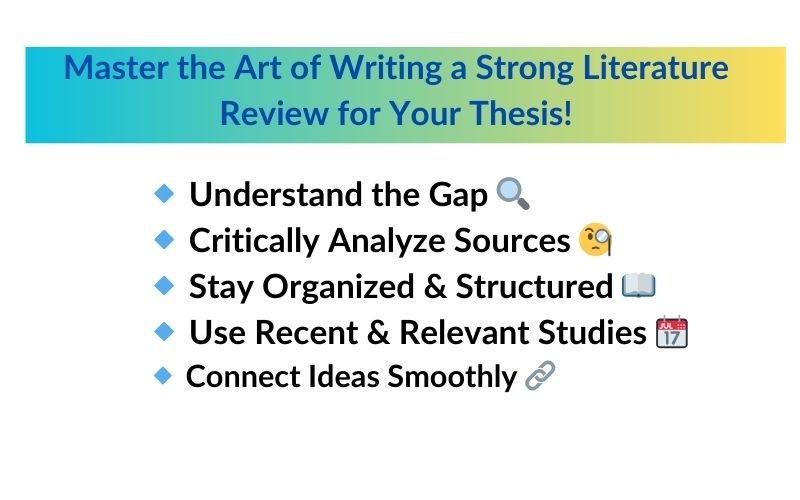
How to Write a Strong Literature Review for a Thesis?
A literature review provides a comprehensive summary of existing research on a topic. It helps establish the context of your study, identifies gaps, and supports your research objectives. 1. Understand the Purpose of a Literature Review 2. Define the Scope 3. Search for Literature 4. Organize the Literature There are different ways to structure your…
-

How to Structure a PhD Thesis?
Structuring a PhD thesis properly is crucial for clarity, coherence, and a logical flow of ideas. While the exact format may vary depending on the university and discipline, a standard PhD thesis structure typically includes the following sections: 1. Title Page 2. Abstract (Summary) 3. Acknowledgments 4. Table of Contents 5. List of Figures and…
-

Difference Between Thesis and Research Paper
A thesis and a research paper differ in purpose, length, and contribution to academia. A thesis is a long, in-depth research document submitted as a requirement for a Master’s or PhD degree. It involves extensive original research, data collection, and analysis, aiming to contribute new knowledge to the field. A thesis is conducted under the…
-
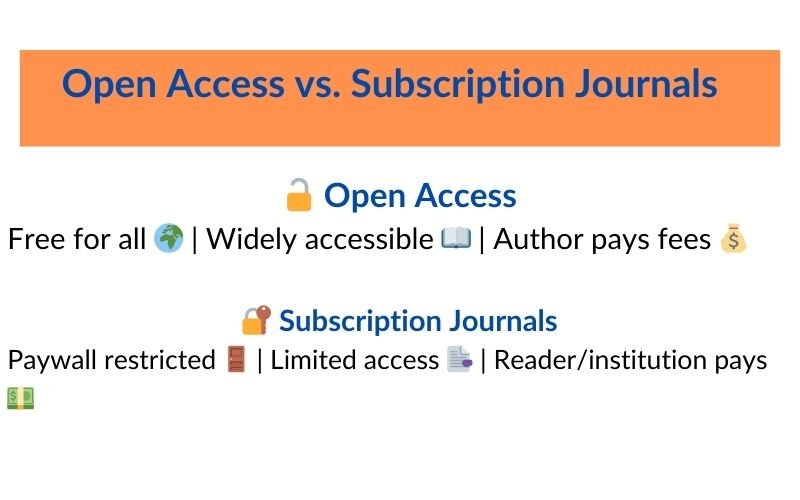
Open Access vs. Subscription Journals: Which One to Choose?
Choosing between open access (OA) and subscription-based journals depends on your research goals, funding availability, target audience, and institutional policies. Here’s a comparison to help you decide: 1. Open Access Journals These journals provide free and unrestricted access to published research.✅ Pros: ❌ Cons: 2. Subscription-Based Journals These require institutions or individuals to pay for…
-
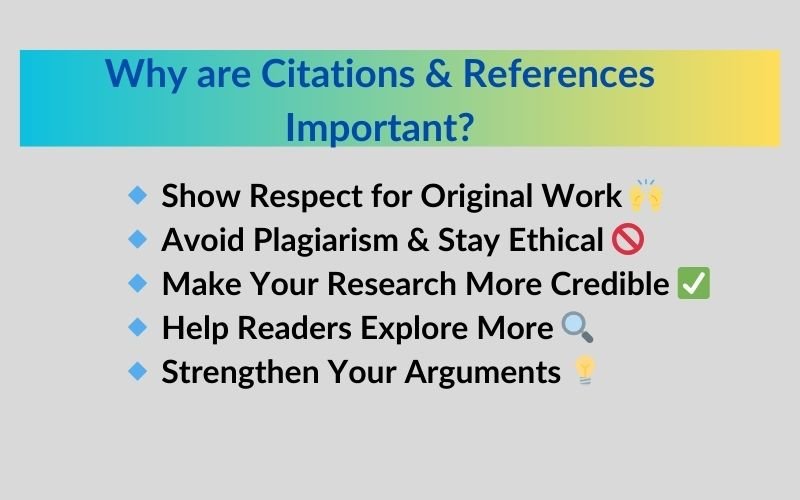
The Role of Citations and References in Research Papers
Citations and references play a crucial role in research papers, ensuring academic integrity, acknowledging previous work, and providing credibility to the arguments presented. Properly citing sources is fundamental to scholarly communication, allowing researchers to build on existing knowledge while giving due credit to original authors. 1. Establishing Credibility and Academic Integrity Citations demonstrate that a…